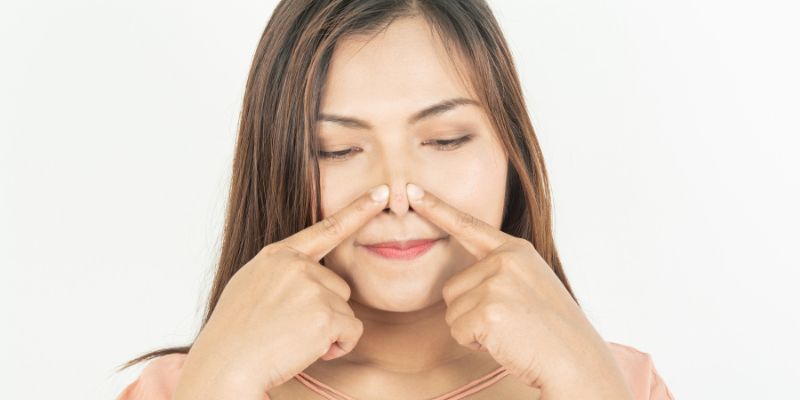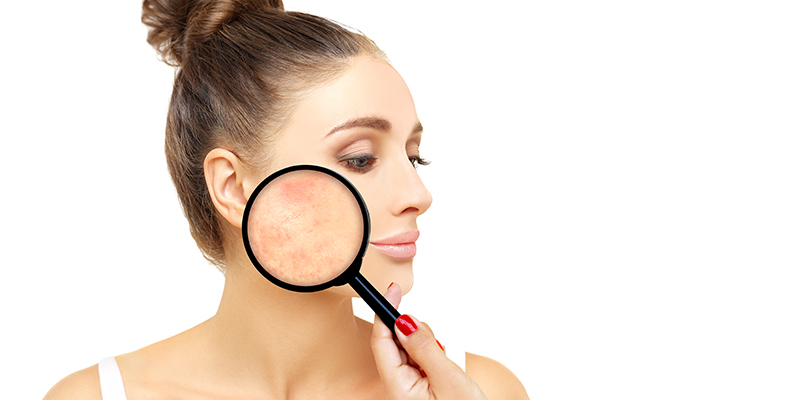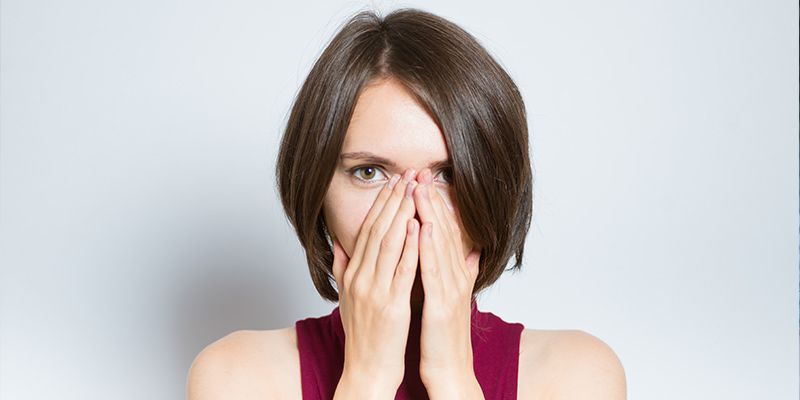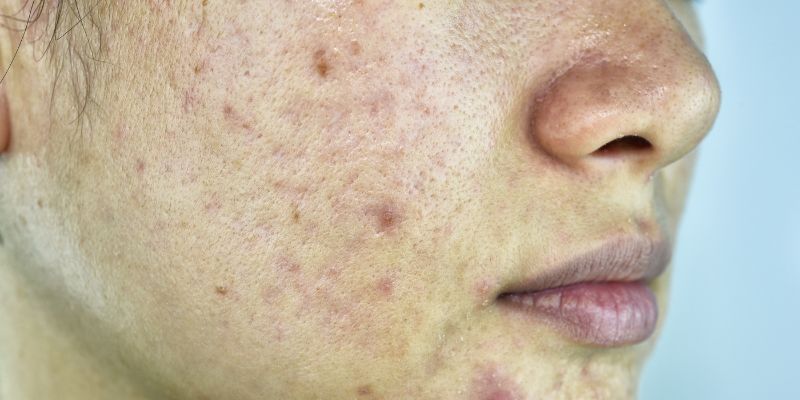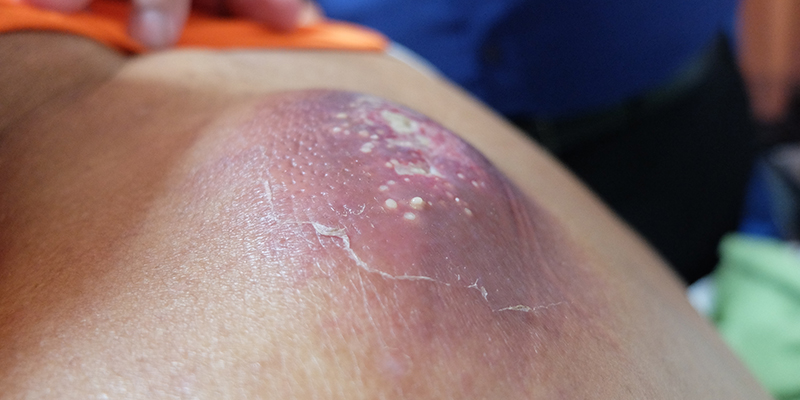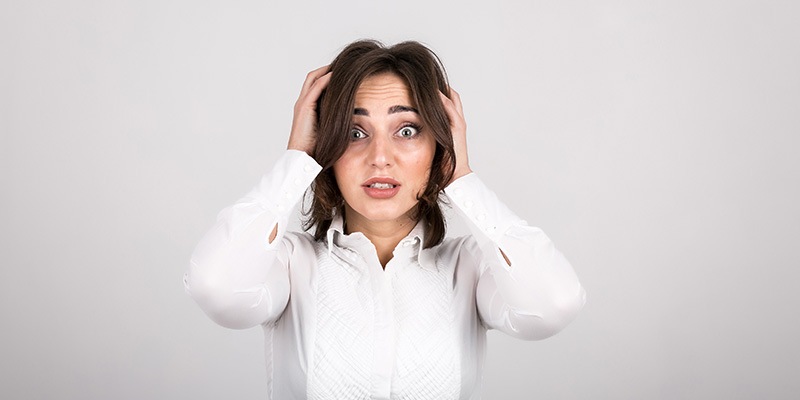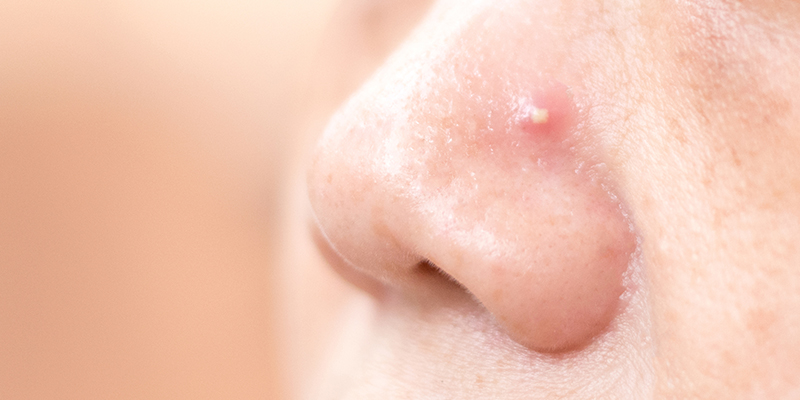How To Get Rid Of Pimples On The Nose?
Pimples, medically known as acne vulgaris, which can occur at any age, are a result of excess sebum production by the sebaceous glands. The pores in the nose area are more prone to pimples as they are larger and can clog easily.
As nose pimples are a common concern, let us understand the causes, symptoms and the different treatments available for them.
A Brief On Acne Vulgaris:
Nose pimples are a symptom of Acne Vulgaris, which occurs when dirt, excess oil, and bacteria clog the hair follicles. Commonly known as acne, dermatologists classify it into four grades based on the type, severity and the extent of its spread.
- Grade 1: Blackheads, whiteheads and papules.
- Grade 2: Papules and pustules, aggravated blackheads and whiteheads.
- Grade 3: Papules, pustules and inflamed nodules.
- Grade 4: Large and painful pustules, nodules, cysts and abscesses.
What causes pimples on the nose?
The following are some of the common causes of nose pimples:
- Hereditary: According to a study, pimples in adults may have a genetic component. It means you can get nose pimples if the condition runs in your family. While there is no specific acne gene, heredity can increase your chances of having acne.
- Hormonal Imbalance: Hormonal fluctuations in the body during menopause, menstruation among women and puberty can trigger pimples. For example, a rise in the testosterone levels can stimulate your skin’s natural oil production, leading to breakouts on the nose. Similarly, women with PCOS (Polycystic ovary syndrome) are also prone to pimples as the ovaries produce more androgen hormones, stimulating sebum production.
- Eating Habits: Many studies clarify the potential link between diet and pimples. For example, consumption of sugary foods can aggravate your acne.
- Stress: Under stressful conditions, our bodies produce excess hormones (like cortisol), stimulating the oil glands, which leads to the overproduction of oil and clogging of pores. Moreover, stress acne usually occurs on the oiliest parts of your face, which includes your nose.
- Drug-Induced Acne: A variety of drugs such as corticosteroids, anabolic steroids, medications with testosterone, halogens, isoniazid, lithium, and some anti-cancer agents can cause acne or aggravate it.
- Cosmetic Products: According to a study, prolonged or excessive use of cosmetics may cause the recurrence of acne. Further, comedogenic ingredients, oily foundations, skin cleansers and soaps with a pH of 8.0 can lead to pimple flare-ups in forehead and nose areas.
Symptoms Of Nose Pimples
- Rough and uneven texture
- Skin discolouration, including dark patches, spots, and redness
- Swelling and inflammation
- Itching
- Pain and tenderness
- Pus-filled bumps
When To See A Dermatologist?
You should consult a dermatologist right away, if:
- You notice the appearance of acne, scars, nodules, or deep cysts on the nose.
- Your regular over-the-counter products are not working anymore.
- You notice that your skin breaks out whenever you are under stress or on certain medication.
Treatment Options For Nose Pimples
There are many ways to treat acne. But which is the best? What is safe? That depends on what type of acne you have and how severe it is.
You must know that there is no one-size-fits-all treatment plan for nose pimples. The most sustainable solution for your nose pimples is to consult a dermatologist who will diagnose the root cause of your nose acne and give you the appropriate treatment.
Pimple Treatments That Need A Doctor’s Prescription
DISCLAIMER:
This information only serves as knowledge. Oliva Skin & Hair Clinic does not, in any way, encourage/advocate the use of the following medications without the supervision of a qualified medical professional.
- Antibiotics: A dermatologist may suggest antibiotics based on the severity of your nose acne. They are classified as topical antibiotics (applied on the skin) and systemic antibiotics (taken orally). Among oral antibiotics, tetracyclines have a long history of usage. The individual drugs within this family are Doxycycline, Minocycline and so on. Due to their antibacterial and anti-inflammatory properties, tetracyclines have shown remarkable effectiveness in treating severe acne. While these antibiotics can be effective, they can cause side effects such as abdominal pain, diarrhoea, nausea, sun sensitivity, or vomiting. You must be aware that topical antibiotics may also increase the chance of skin bacteria, developing antibiotic resistance. On the other hand, the intake of oral antibiotics may cause women to become susceptible to yeast infections.
- Isotretinoin: Systemic Isotretinoin is one of the effective treatments for severe pimples, especially for resistant nodular acne, that is difficult to treat.
- Azelaic Acid: With anti-microbial and anti-inflammatory properties, Azelaic Acid is an effective treatment for stubborn pimples. If used without supervision, you may experience side effects such as redness, burning, and irritation.
- Dapsone (Gel): This is known to be effective in treating inflammatory acne.
- Oral contraceptives: These are used to correct androgen levels, which can lead to excess sebum production. These pills need a doctor’s supervision for the following reasons:
-
- Doctors usually prescribe it for hormonal acne. Hence, it is not a suitable option if you have PCOS or insulin resistance. Thus, a thorough diagnosis to identify the root cause is necessary.
- The type and the dosage of the birth control pills for hormonal acne is critical, as most contraceptives are not approved for pimple treatments. Further, even a small variation in the dosage can cause severe side effects, thus making doctor supervision mandatory.
Over-The-Counter Treatments
Most acne-treating products like cleansing lotions, gels, foams, leave-on products, and treatments or kits contain many active ingredients. Those are:
- As bactericides, Benzoyl Peroxide, Salicylic Acid, and Alpha Hydroxy Acid (AHA) kill acne-causing bacteria, reduce inflammation and clear blocked pores. They also increase the production of epithelial cells that helps in peeling the skin and treating pimples.
Do keep in mind that these treatments may cause irritation (i.e. redness, burn, swelling, itching, dryness and discolouration) in some people and have no effect on sebum production. Therefore, pimples may return once you stop using them. AHA-based products also can make your skin more sensitive to sunlight. - Similarly, skin care products with sulphur help to dry the surface of your skin and remove the excess oil that causes pimple breakouts. However, sulphur is not a popular skin care product, considering its foul odour.
- Many dermatologists may recommend a combination of topical retinoid and anti-microbial therapy to eliminate pimples. However, retinoids can cause severe side effects, such as burning, erythema, pruritus, dryness, headaches and pain in the muscle, bone and joints. Thus, we recommend a dermatologist’s supervision.
Home Remedies For Nose Pimples
Most home remedies have little to no effect against chronic acne. There is also no scientific evidence proving that home remedies can reduce nose pimples. Thus, it is advisable to opt for proven acne treatments or medications to achieve your desired results.
Advanced Dermatological Treatment Options For Nose Pimples
A qualified and experienced dermatologist may prescribe one or a combination of these advanced treatments:
- Comedone Extraction: The treatment involves the direct removal of pimples causing blockages by using a comedone extractor tool. Dermatologists usually recommend it for individuals who do not get their desired results from the first-line of therapies. Do note that this does not prevent new pimples from appearing.
- Chemical Peels: Chemical peeling is a therapeutic procedure that exfoliates your skin, clears out dirt, grime and excess sebum. These specially-formulated plant extracts penetrate the skin, destroy bacteria, and unclog the pores to initiate healing. It is critical to get a chemical peel under the supervision of a dermatologist as several factors can impact the result, including any medications you may be using or your immune system response to it. The dermatologist concerned will investigate your past medical history and take a complete physical examination before starting this treatment.
- Intralesional Injections: Dermatologists recommend intralesional injections to treat specific acne such as cysts and inflammatory papules. The treatment is easy and safe. However, you may face problems if there is no expert supervision, such as pain during administration, bleeding, infection or allergic reaction.
- Laser Therapy: Laser devices have gained popularity due to their ease of usage, clinical efficacy, and little to no adverse effects. And with a dermatologist prescribed post-treatment care, these treatment results are long lasting.
At Oliva Skin & Hair Clinic, our dermatologists advise laser toning sessions as an adjunct treatment to reduce acne-induced hyperpigmentation. They will also recommend a skincare routine that is suitable for your skin type and needs.
Prevention Tips For Nose Pimples
- Have a proper skincare routine and this starts with identifying your skin type and understanding its needs. Use suitable skincare products. It is a good idea to ask your dermatologist to recommend them.
- Use a gentle cleanser to wash acne-prone areas twice a day. Make sure you also protect your skin with a sunscreen at all times.
- Make sure you remove all your make-up and apply a moisturiser before going to bed.
- Use oil-free, water-based moisturisers and non-comedogenic products.
- Avoid frequent scrubbing of the skin around your nose as it may irritate your inflamed skin and aggravate acne.
- Do not pick or squeeze pimples, as it can lead to permanent marks and scars.
- Drink more water to detoxify your body.
- Consult a dermatologist as soon as you notice a breakout.
Conclusion
When it comes to treating pimples on the nose or any part of your body, it takes time to see an improvement. So, be patient. It is necessary to seek medical advice from an experienced dermatologist to determine the source of the issue as early as possible.
Find out how we can help you treat your pimples safely and effectively at your nearest Oliva Skin & Hair Clinic!
Frequently Asked Questions
Our certified subject matter experts do extensive research and collate facts from reputed scientific journals and international studies to create informative and engaging articles related to all your dermatology concerns. They strive to help you decipher medical jargon, distinguish fact from fiction and overcome paranoia. Our qualified medical board or expert panel goes a step further to verify these facts based on their rich academic knowledge, vast clinical experience and critical industry insights to ensure you consume only medically accurate content that empowers you to make informed decisions about your hair and skin-care treatments and weight management. Check out our Editorial policy for further details
https://pubmed.ncbi.nlm.nih.gov/10468803/https://www.ncbi.nlm.nih.gov/pmc/articles/PMC6408631/
https://pubmed.ncbi.nlm.nih.gov/21076799/
https://www.ncbi.nlm.nih.gov/pmc/articles/PMC8971946/
https://www.ncbi.nlm.nih.gov/pmc/articles/PMC6360964/
https://pubmed.ncbi.nlm.nih.gov/28274352/#:~:text=Corticosteroids%2C%20anabolic%20steroids%2C%20testosterone%2C,undoubted%20causal%20relationship%20to%20acne.
https://www.ncbi.nlm.nih.gov/pmc/articles/PMC7527424/
https://www.ncbi.nlm.nih.gov/pmc/articles/PMC7577330/#B14
https://www.ncbi.nlm.nih.gov/pmc/articles/PMC7577330/
https://www.ncbi.nlm.nih.gov/books/NBK525949/#:~:text=Indications-,Isotretinoin%20is%20an%20oral%20prescription%20medication%20that%20affects%20sebaceous%20glands,conventional%20therapy%2C%20including%20systemic%20antibiotics.
https://www.ncbi.nlm.nih.gov/pmc/articles/PMC7395687/
https://pubmed.ncbi.nlm.nih.gov/33600049/
https://www.ncbi.nlm.nih.gov/books/NBK279209/
https://www.ncbi.nlm.nih.gov/pmc/articles/PMC6273829/
https://pubmed.ncbi.nlm.nih.gov/24472429/
https://www.ncbi.nlm.nih.gov/pmc/articles/PMC6017965/
https://www.ncbi.nlm.nih.gov/pmc/articles/PMC6273829/
https://pubmed.ncbi.nlm.nih.gov/28585191/
https://www.ncbi.nlm.nih.gov/pmc/articles/PMC3754244/
https://www.ncbi.nlm.nih.gov/pmc/articles/PMC6053170/




